SAN ANTONIO - Saturday, the region will experience the first of two amazing solar eclipses. Tomorrow’s eclipse is known as the “Ring of Fire,” eclipse. I talked
Saturday, the region will experience the first of two amazing solar eclipses. Tomorrow’s eclipse is known as the “Ring of Fire,” eclipse. I talked with Angela Speck, astronomer and researcher at UTSA about the odds of getting both eclipses here.
We get an eclipse somewhere on the planet every six months," said Dr. Angela Speck, chair, UTSA Department of Physics and Astronomy. "Even though we think of eclipses as being quite rare, there is one somewhere on the planet every six months. The last time there was a coincidence like this, we had two together, one after the other, anywhere on the planet was 18 years ago. And that was over Central Libya. But it's not as uncommon as you think.
"What you have is something that we can predict out for centuries, millennia. We can we can go back centuries or millennia and work out exactly where they were, and what time of day they happened and everything," said Dr. Speck. "So as long as you understand and know how long it takes things to move around, you can figure out exactly when the alignment is going to be.
United States Latest News, United States Headlines
Similar News:You can also read news stories similar to this one that we have collected from other news sources.
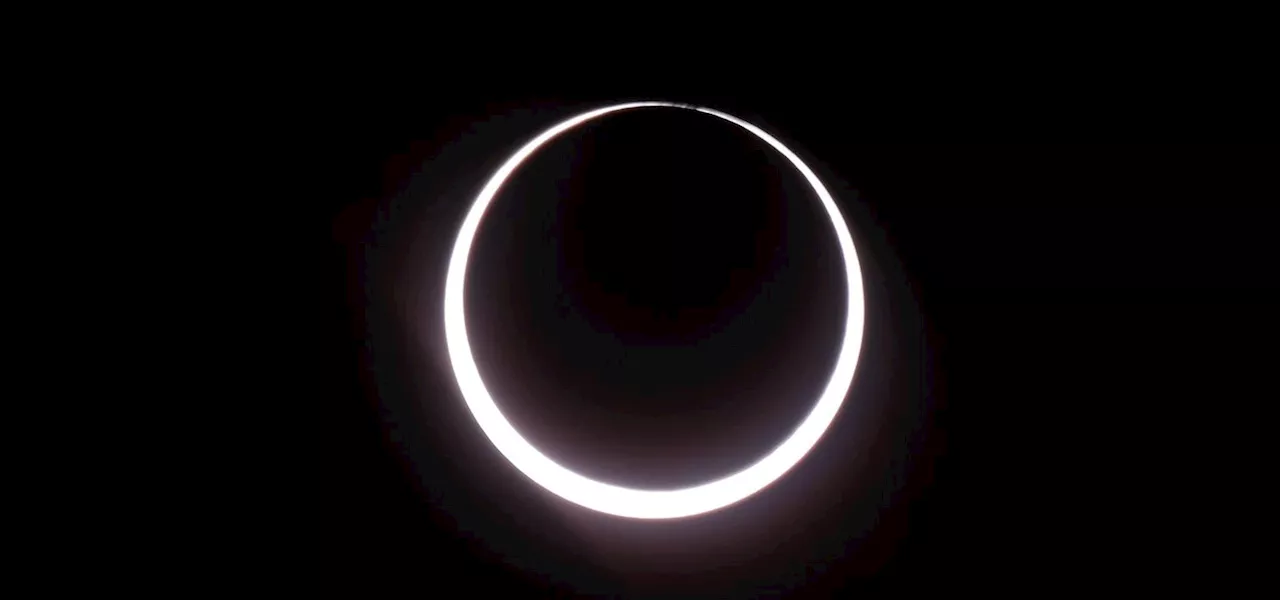 Best Eclipse Photos: ‘Ring Of Fire’ Wows Western States As All U.S. See Solar EclipseI'm an experienced science, travel and photography journalist and stargazer writing about exploring the night sky, total solar eclipses, moon-gazing, astro-travel, astronomy and space exploration. I'm the editor of WhenIsTheNextEclipse.com, SmartTelescopeReviews.
Best Eclipse Photos: ‘Ring Of Fire’ Wows Western States As All U.S. See Solar EclipseI'm an experienced science, travel and photography journalist and stargazer writing about exploring the night sky, total solar eclipses, moon-gazing, astro-travel, astronomy and space exploration. I'm the editor of WhenIsTheNextEclipse.com, SmartTelescopeReviews.
Read more »
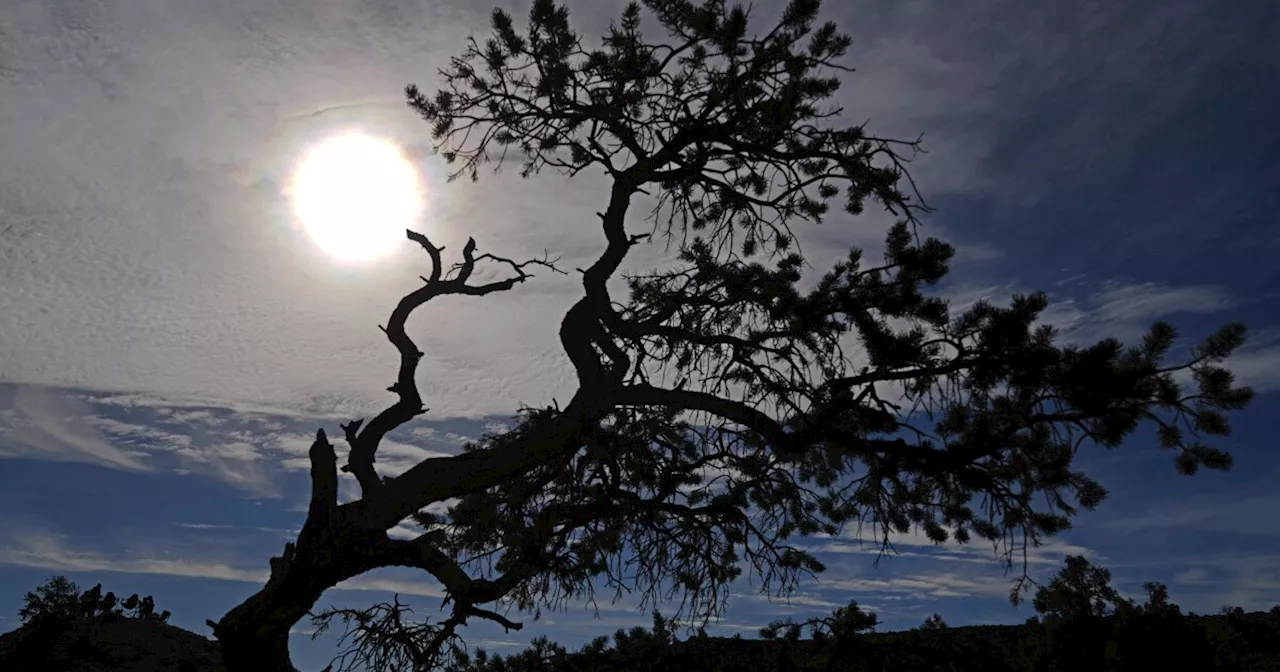 Angelenos Celebrate 'Ring Of Fire' Solar Eclipse On Social MediaBefore joining LAist in 2023, I covered L.A. politics, the environment, immigration, and South Dakota's 2023 legislative session for the Associated Press.
Angelenos Celebrate 'Ring Of Fire' Solar Eclipse On Social MediaBefore joining LAist in 2023, I covered L.A. politics, the environment, immigration, and South Dakota's 2023 legislative session for the Associated Press.
Read more »
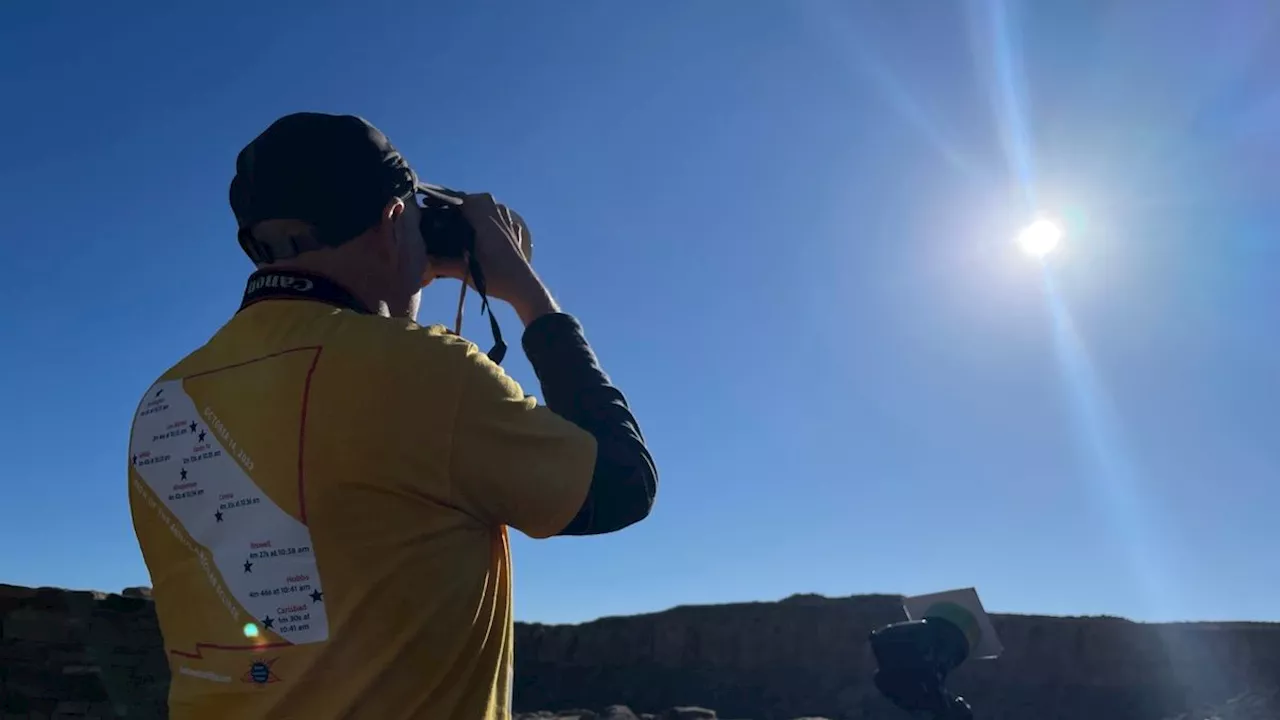 What the 'ring of fire' eclipse looked like from the home of ancient solar astronomyJamie is an experienced science, technology and travel journalist and stargazer who writes about exploring the night sky, solar and lunar eclipses, moon-gazing, astro-travel, astronomy and space exploration. He is the editor of WhenIsTheNextEclipse.com and author of A Stargazing Program For Beginners, and is a senior contributor at Forbes.
What the 'ring of fire' eclipse looked like from the home of ancient solar astronomyJamie is an experienced science, technology and travel journalist and stargazer who writes about exploring the night sky, solar and lunar eclipses, moon-gazing, astro-travel, astronomy and space exploration. He is the editor of WhenIsTheNextEclipse.com and author of A Stargazing Program For Beginners, and is a senior contributor at Forbes.
Read more »
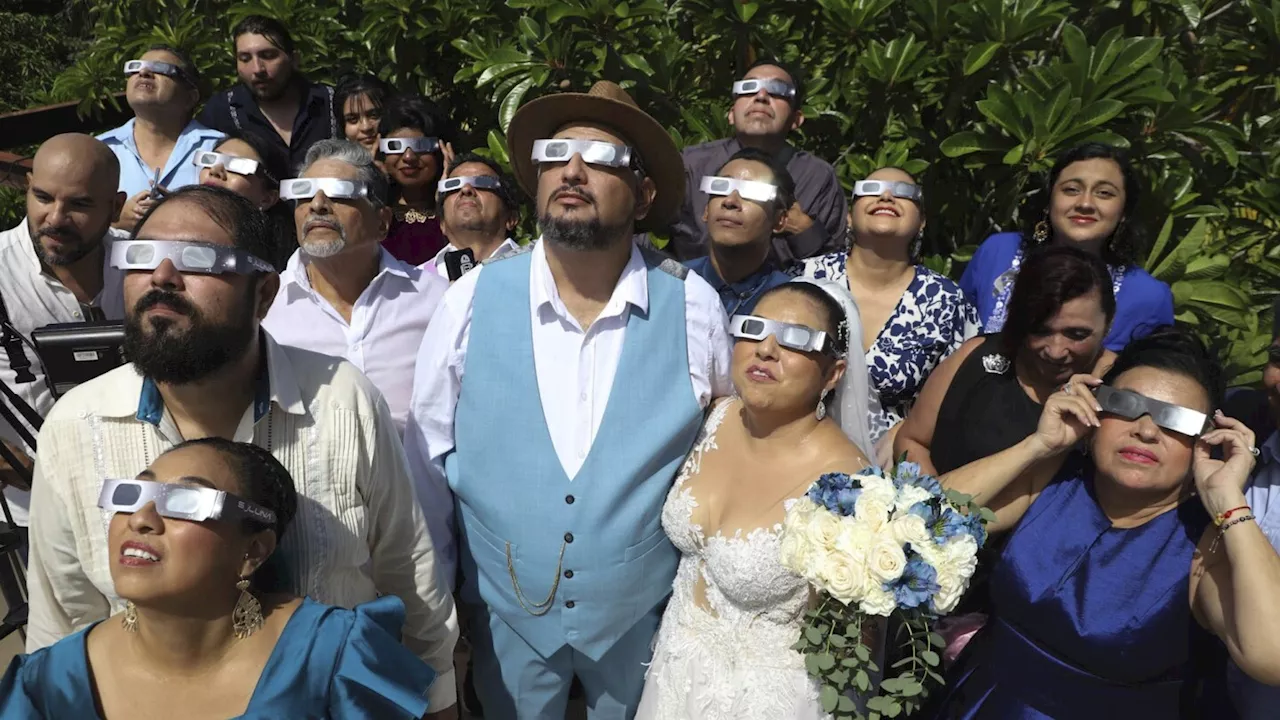 Solar eclipse 2023: Watchers react to the 'ring of fire'Millions had been waiting with anticipation. A NASA livestream of the phenomenon reported it in Eugene, Oregon, shortly after 9:15 a.m. local time. This came over an hour after a partial eclipse set in. Unlike during a total solar eclipse, the moon doesn’t completely cover the sun during a ring of fire eclipse.
Solar eclipse 2023: Watchers react to the 'ring of fire'Millions had been waiting with anticipation. A NASA livestream of the phenomenon reported it in Eugene, Oregon, shortly after 9:15 a.m. local time. This came over an hour after a partial eclipse set in. Unlike during a total solar eclipse, the moon doesn’t completely cover the sun during a ring of fire eclipse.
Read more »
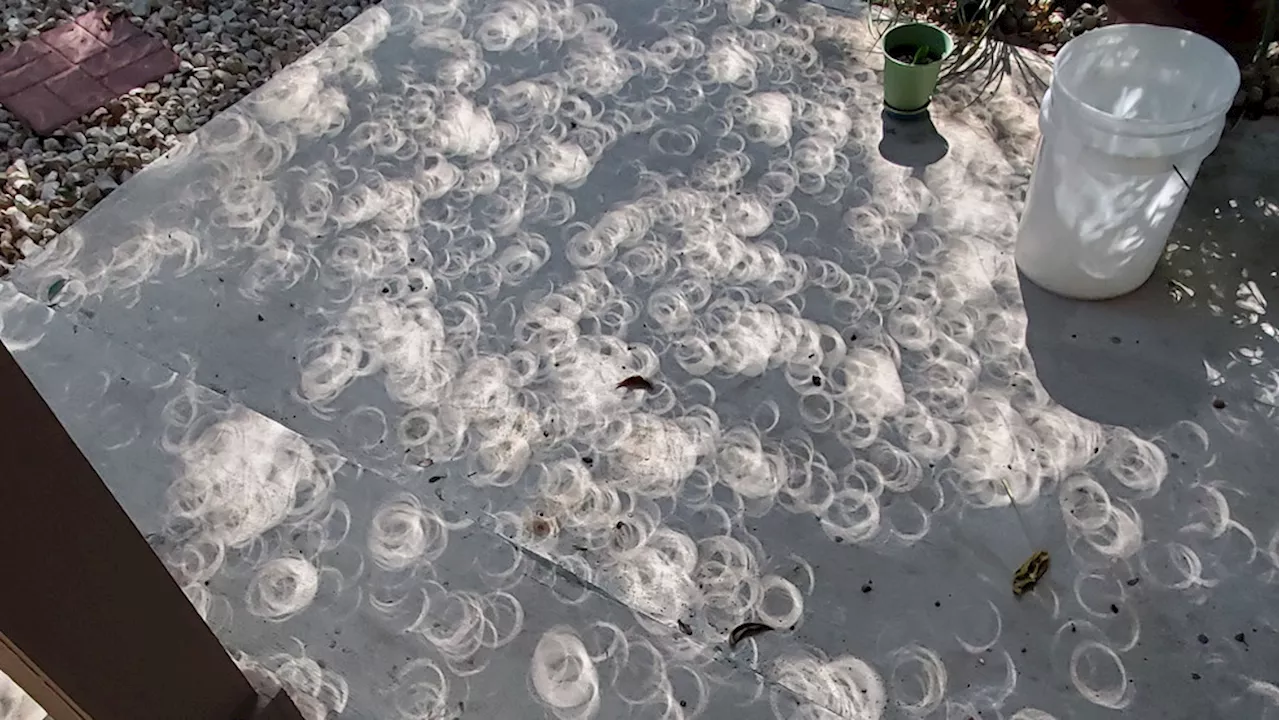 Unveiling the mystery of crescent-shaped projections during 'Ring of Fire' solar eclipseWe asked Meteorologist Alex Garcia how/why this happens.
Unveiling the mystery of crescent-shaped projections during 'Ring of Fire' solar eclipseWe asked Meteorologist Alex Garcia how/why this happens.
Read more »
